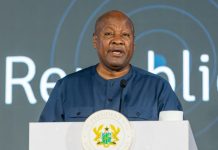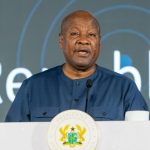According to Deloitte, around 50 countries worldwide are either heading to the polls this year or have already done so, including those in West Africa.
Ghana, which will hold its elections on December 7, 2024, will see the state of the economy and citizens’ welfare as crucial factors in shaping voter decisions and evaluating campaign promises.
Ghana’s economy, which relies heavily on cocoa and gold, will be particularly influenced by these factors.

Deloitte’s West Africa Economic Outlook report for August 2024 highlights that the election’s outcome will significantly impact policy direction and investor and market sentiment.
This comes amid projections that high inflation, exchange rate volatility, currency weakness, and rising debts will continue to affect West Africa, especially Ghana and Nigeria, through the remainder of 2024.
The report notes that West Africa’s macroeconomic conditions remain challenging due to high inflation, elevated interest rates, currency depreciation, and substantial debt levels.
Consequently, consumers are expected to face reduced purchasing power, and businesses will likely incur higher operating costs.
Both households and businesses are already adopting cost-cutting measures to cope.
“The resulting effect of these macroeconomic headwinds on productivity and overall aggregate demand is likely to stall the region’s economic growth for the year.
In July, the International Monetary Fund (IMF) revised its 2024 growth forecast for Nigeria to 3.1% from its April forecast of 3.3%.
The IMF also reduced sub-Saharan Africa’s growth forecast to 3.7% from 3.8% in April due to the downward revision in Nigeria’s growth outlook.
Meanwhile, the IMF projects Ghana’s economy will grow 2.8% in 2024 and 4.4% in 2025,” Deloitte said .
It added “West Africa’s economic output has been limited by the rising cost of goods and services, leading to an increase in interest rates as monetary authorities attempt to rein in inflation.
Nigeria and Ghana have also been facing currency volatility, which has had a severe impact on their ability to import raw materials and equipment required to boost output.
In the first six months of the year, the Nigerian naira has lost over 40% of its value, and the Ghanaian cedi over 20% of its value against the US dollar,” it said.
Deloitte reports that Nigeria’s economy grew by 2.98% year-on-year in the first quarter of 2024.
This is an improvement over the 2.31% growth in the same period in 2023 but represents a slowdown from the nearly 3.5% growth observed in the fourth quarter of 2023.
Key contributors to growth in the first quarter of 2024 include the finance and insurance sector, which expanded by 31.24%, and the water supply, sewage, waste management, and remediation sector, which grew by 6.95%.
The oil and gas sector, a cornerstone of Nigeria’s economy, grew by 5.7% after a period of contraction.
However, the agriculture sector continued to lag with a growth rate of just 0.18%.
The slower growth reflects reduced consumer spending and investment, largely due to rising prices and foreign exchange challenges, which have also led to the exit of several multinational corporations.
In contrast, Ghana’s economy showed stronger growth prospects. It grew by 4.7% year-on-year in the first quarter of 2024, driven by a robust 6.8% growth in the industrial sector.
The agriculture and services sectors grew more modestly at 4.1% and 3.3%, respectively.
Ghana is recovering from a debt crisis, with ongoing restructuring of its $30 million debt and supportive monetary policies by the Bank of Ghana that have helped curb inflation.
Additionally, Ghana has received two tranches of IMF disbursements this year, totaling $1.56 billion since 2023.





















































![[FREE FREE MONEY] Predict and Win a Guaranteed GH¢200 From Us EVERY WEEK](https://wordpress.ghanatalksradio.com/wp-content/uploads/2022/02/Predict-and-Win-Final-09-03-2021-218x150.jpg)
![[Predict & Win – 8th/Oct.] WIN A Guaranteed ¢200 From Us This Week](https://wordpress.ghanatalksradio.com/wp-content/uploads/2021/10/maxresdefault-16-218x150.jpg)
![[Predict & Win – 2nd] WIN A Guaranteed ¢200 From Us This Week](https://wordpress.ghanatalksradio.com/wp-content/uploads/2021/09/maxresdefault-50-218x150.jpg)
![[Predict & Win – 25th] WIN A Guaranteed ¢200 From Us This Week](https://wordpress.ghanatalksradio.com/wp-content/uploads/2021/09/maxresdefault-36-218x150.jpg)
![[Predict & Win – 18th] WIN A Guaranteed ¢200 From Us This Week](https://wordpress.ghanatalksradio.com/wp-content/uploads/2021/09/maxresdefault-23-218x150.jpg)









![[National cathedral] See full list of churches that have contributed since 2018](https://wordpress.ghanatalksradio.com/wp-content/uploads/2020/09/Ghana-National-Cathedral-GhanaTalksRadio-100x70.jpg)



